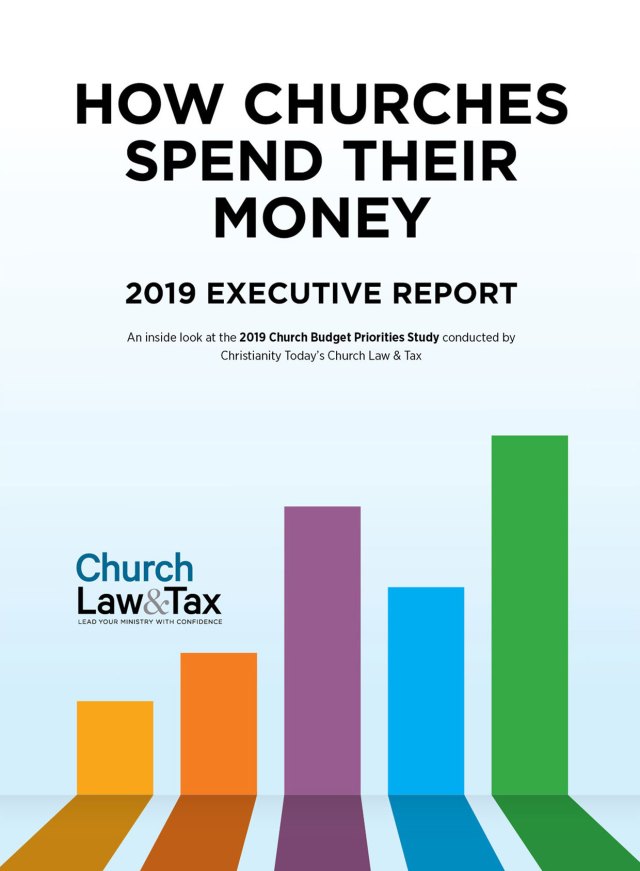Editor’s Note: The passage of the “Coronavirus Aid, Relief, and Economic Security Act” (CARES Act) on Friday, March 27, 2020, includes provisions intended to financially aid businesses and households. Ministries are included in this relief package, and some of the provisions may either aid furloughed or laid-off church employees or offer incentives to retain employees. A free overview of the CARES Act, as well as a detailed summary, are now available from attorney, CPA, and senior editor Richard R. Hammar.
Additionally, new guidance issued by the US Department of Labor now suggests clergy and church employees previously considered ineligible for unemployment benefits may now be considered eligible. See the “Unemployment insurance provisions” section of Hammar’s overview for this update.
The rapid progression of the COVID-19 (coronavirus) pandemic worldwide has created a perfect storm of unexpected financial pressures for many American churches.
Fast-changing guidance and restrictions on public gatherings have detrimentally affected weekly worship collections for many congregations. And with an anticipated surge in unemployment claims unfolding, financial hardships are erupting among attenders, hampering the ability for some to give as they normally would.
That combination of conditions already is forcing many church leaders to assess their budgets and expenses. In some instances, decisions about cutting back on personnel—traditionally a church’s largest expense—are already surfacing.
Those decisions now are spawning another storm of significant consequence: employees laid off by their churches most likely aren’t allowed to apply for unemployment benefits. That’s because the vast majority of states exempt churches from paying unemployment taxes. When churches don’t pay in, employees who are let go are ineligible for any unemployment benefits associated with their previous ministry work.
As Church Law & Tax senior editor Richard Hammar, an attorney and CPA, explains in chapter 12 of his annual Church & Clergy Tax Guide:
The following activities ordinarily are exempt from state unemployment taxes: [S]ervice performed in the employ of a church, a convention or association of churches, or an organization that is operated primarily for religious purposes and that is operated, supervised controlled or principally supported by a church or convention or association of churches [and] service performed by a duly ordained, commissioned, or licensed minister of a church in the exercise of his ministry or by a member of a religious order in the exercise of duties required by such order.
As Hammar also notes, “[t]he exemption is not limited to employees performing strictly religious duties,” and generally includes employees of church-controlled elementary or secondary schools.
Churches theoretically can pay state unemployment taxes voluntarily, which would then make their ex-employees eligible. But such situations are rare, notes Robert Brockman Jr., a California-based attorney who represents numerous churches. “They are the minority,” he adds. “The vast majority of them do not participate.”
Adds Lisa Runquist, a California-based attorney and senior editorial advisor for Church Law & Tax: “I know of no church that voluntarily does it.”
How can churches still help former employees?
Unless they oversaw human resources or payroll themselves, church leaders and employees who are laid off are often caught off-guard by their ineligibility for unemployment, Brockman says. That can blindside many who are already reeling from the effects of losing their job.
How can churches still help? Brockman, Runquist, and others shared these insights:
- Review the provisions of the recently adopted CARES Act, which may aid laid-off church employees or provide churches with incentives to retain employees.
- Note the responsibilities your church now faces with respect to paid leave and sick leave after the recently adopted federal law affecting the Family and Medical Leave Act. Also note that the Labor Department says any “individual receiving paid sick leave or paid family leave is still receiving pay” and thus is not considered unemployed.
- Consider going above and beyond what’s legally required with a layoff to compensate the person losing their job, says Donn Meindertsma, an attorney and partner with Washington, D.C.-based Conner & Winters. But he cautions churches to tread carefully, since any such steps taken will trigger taxable income and may be shaped—or even limited—by federal and state laws.
- Encourage former employees to seek assistance through the church’s existing benevolence program. (Also note that any benevolence provided to a current employee, especially in response to any type of compensation reduction, still results in taxable income.)
- Contact your state to determine if it has applied yet for a portion of the $100 million in Dislocated Worker Grants recently made available by the US Department of Labor in response to coronavirus. The grants “will provide eligible participants with both disaster-relief employment and employment and training activities,” the department said. “These participants can include dislocated workers, workers who were laid-off as a result of the disaster, self-employed individuals who are unemployed or underemployed as a result of the disaster, and long-term unemployed individuals.”
- Contact your state to determine if funds for Disaster Unemployment Assistance from the Federal Emergency Management Agency (FEMA) become available, Brockman says. In general, FEMA says individuals who become unemployed due to a major disaster, and otherwise couldn’t qualify for state unemployment insurance, may be able to do so, he notes.
- Encourage former employees to research the state’s welfare program, and the process necessary to apply, Runquist says.
- Assemble a list of local and state social service agencies that can prove helpful, especially with securing food, medications, and other necessities, says CPA and tax attorney Ted Batson with CapinCrouse, another Church Law & Tax advisor.
- Note that this is a point in time to reevaluate your church’s decision not to pay into unemployment (if it currently does not), Batson suggests. Though the law exempts churches, there still may be theological reasons to participate. “Is there a Christian witness issue here in the midst of this?” he says. While there may be good reasons for churches to decide not to pay into unemployment, Batson says that “this situation highlights practical considerations that may or may not impact how a church evaluates this decision in the future.”





